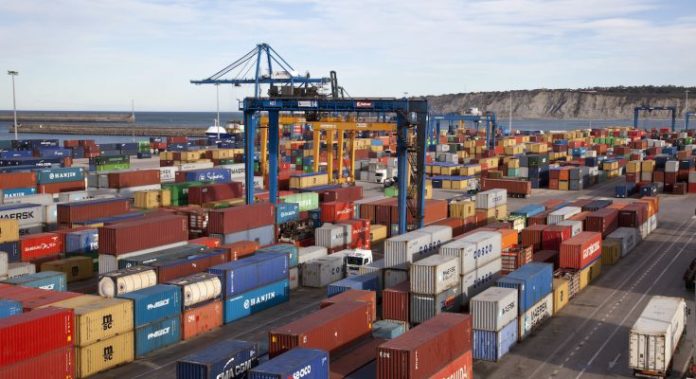Trade and shipping logistics experts have condemned the analogous system of cargo examination at Nigerian seaports.
The experts at a shipping forum in Lagos recently, berated calls by port stakeholders on Customs to fix scanning machines inherited from destination inspection (DI) service saying that scanners are old technology that modern seaports no longer use.
The Nigeria Customs Service had abandoned the scanners inherited from destination inspection (DI) service providers at the expiration of their contracts in 2014. Since then, all imported cargoes undergo physical examinations at the ports, with its inherent delay disadvantages. More than three hours are spent on examining one container at the ports, limiting the number of containers examined in a day and leading to congestion at the seaports.
Obiora Madu, director-general, African Centre for Supply Chain (ACSC) condemned the 100 percent physical examination on cargoes being observed by Nigeria Customs Service at the country’s seaports.
Madu, who is also a senior lecturer of Business Administration and country manager, Malaysia University of Science and Technology (MUST) said it was a national shame to still have the Nigeria Customs examine all imported cargoes physically at a time when even scanners are no longer in vogues.
Madu said Radio Frequency Identification (RFID) are now being used to examine cargoes at modern ports, adding that even use scanners have become old technology.
He advised the federal government of Nigeria to shift its attention away from purchasing scanning machines for Nigerian ports, but rather embrace a more sophisticated technology such as the RFID at the port.
The RFID is a technology that uses electromagnetic fields to automatically identify and track tags attached to objects including containers, vehicles, cash, clothing, and possessions, or implanted in animals and people for Automatic Identification and Data Capture (AIDC)
He said, “It should be a national shame that we are still talking about using scanning machines for cargo examination at the seaports. The government should go for RFID; that is what nations are using today; that is what every modern port should be using.”
According to him, Nigeria is more than matured for the scanning machine technology.
“I was in Malaysia and we visited the company, and when we said we were from Nigeria, the man said that five years ago, Nigeria had put out a bid for that technology and that they applied but were not given. This means that the need for this new technology has been seen seven years ago, it is not something new,” he said.
“When a container has RFID tags, then you install the readers at the port, all you need is just for the containers to be passing, it is not like a scanning machine that is older and more cumbersome,” he added
Also speaking at the shipping stakeholders forum in Lagos on ease of clearing charitable goods in Nigeria, recently Okwy Amahalu, senior procurement executive at GIZ, a consultant to European Union, said a redundant Customs service at the port was causing many charitable good to be abandoned at the ports.








